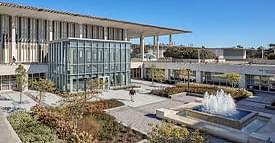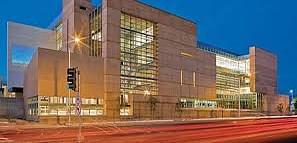Bachelor (Medical Laboratory Science)
Field of Study:
$14,522/Yr
Tuition Fees
| Year | 1st Year Fees |
|---|---|
| Tuition Fees | $14522 (USD 14522) |
Previous Year Tuition Fees
| Year | 1st Year Fees |
|---|---|
| 2022 | $15663 (USD 15663) |
Important Dates
Students interested in pursuing medical laboratory science should have an interest and aptitude in the sciences, particularly chemistry and biology. Laboratory work plays a vital role in the daily routine of the medical laboratory scientist and, while usually not having direct contact with patients, these individuals enjoy being a vital member of the health care team. Clinical chemistry, hematology, microbiology, urinalysis, immunohematology and immunology are the principle areas of practice in the laboratory. Besides laboratory testing, a medical laboratory scientist may also monitor test quality, supervise personnel, conduct research and develop new tests and methodologies.
Career Opportunities
Certified medical laboratory scientists may readily find employment throughout the United States in hospitals, medical and diagnostic laboratories, and other healthcare services. According to the U.S. Department of Labor Bureau of Labor Statistics, employment of clinical laboratory workers is expected to grow faster than average for all occupations through 2022. Mean annual earnings are $50,550.
The Program
North Dakota State University’s Bachelor of Science degree, major in medical laboratory science, includes three years of academic course work on campus followed by an 11 to 12 month full-time professional-level internship in an affiliated accredited hospital school of medical laboratory science. Graduates are eligible to take a national certification exam offered by the American Society for Clinical Pathology Board of Certification. To remain certified, medical laboratory scientists must earn continuing education credits.
College academic work includes college algebra, biological sciences, chemistry and statistics, along with humanities and social science electives. Transfer students need to successfully complete a minimum of 20 resident credits at NDSU prior to beginning an internship. The full-time internship consists of classroom and clinical bench instruction in clinical chemistry, hematology, immunohematology, microscopy/urinalysis, microbiology, serology, phlebotomy, education, management, and research methods.
In order to participate in a medical laboratory science educational program, students must be able to comply with program-designated essential functions, or request reasonable accommodations to meet these essential functions. Requirements include a sound intellect, good motor skills, eye-hand coordination and dexterity, effective communication skills, visual acuity to perform macroscopic and microscopic analyses, or read procedures and graphs, and behavioral skills such as organization, time management and good judgment, even in emergency situations.
TOP Scholarships
| Scholarship name | Award amount | Eligibility |
|---|---|---|
| - | - | - |
| - | - | - |
| - | - | - |
Key Resources for Your Study Abroad Journey
Scholarship Grants & Financial Aids
| Name | Scholarship Per Student | Level of Study | Type | |
|---|---|---|---|---|
| Young Women in Public Affairs Award | Scholarship per student$ 4,000/Yr$4,000 | Level Of StudyBachelor | TypeMerit-Based | |
| VueVille Future Technology Scholarship | Scholarship per student$ 1,000/Yr$1,000 | Level Of StudyBachelor | TypeMerit-Based | |
| Axol Science Scholarship | Scholarship per student$ 2,000/Yr$2,000 | Level Of StudyBachelor | TypeCompany-Sponsored | |
| ASID Foundation Legacy Scholarships | Scholarship per student$ 4,000/Yr$4,000 | Level Of StudyBachelor | TypeMerit-Based | |
| Innovation in Education Scholarship - La Tutors 123 | Scholarship per student$ 500/Yr$500 | Level Of StudyBachelor | TypeMerit-Based | |
| (ISC)² Women’s Cybersecurity Scholarships | Scholarship per studentVariable Amount | Level Of StudyBachelor | TypeMerit-Based |
Similar Colleges


University at Albany


Northern State University


Abilene Christian University
.jpeg?h=143&mode=stretch)

Ohio Northern University


University of South Carolina


University of Akron


State University of New York Polytechnic Institute


University of New Mexico


























Comments